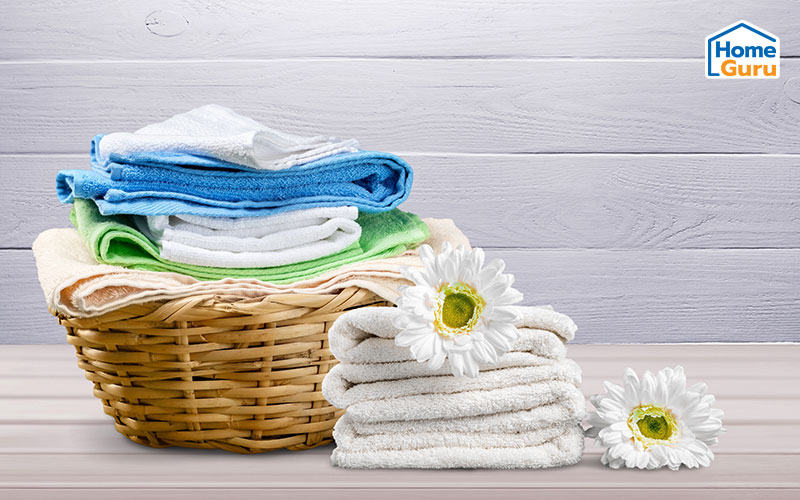How To Get Rid Of Musty Smell In Fabrics: A Comprehensive Guide
Dealing with musty smell in fabrics can be frustrating, but it is a common issue that many people face. Whether it's caused by dampness, improper storage, or lack of ventilation, musty odors can ruin your favorite clothes, bedding, and upholstery. Fortunately, there are effective ways to eliminate these unpleasant smells and restore the freshness of your fabrics.
In this article, we will explore the causes of musty odors in fabrics and provide practical solutions to address the problem. We'll cover a range of methods, from natural remedies to professional treatments, ensuring that you have all the tools you need to tackle this issue.
By the end of this guide, you'll have a clear understanding of how to prevent and eliminate musty odors in fabrics, helping you maintain a clean and fresh environment. Let's dive in!
Read also:Movi The Ultimate Guide To Understanding And Utilizing This Revolutionary Technology
Table of Contents
- Causes of Musty Smell in Fabrics
- Natural Remedies to Remove Musty Smell
- Professional Treatments for Musty Fabrics
- Preventing Musty Smell in Fabrics
- Storage Tips to Avoid Musty Odor
- Frequently Asked Questions
- Benefits of Eliminating Musty Smell
- Environmental Impact of Musty Smell Solutions
- Health Considerations When Dealing with Musty Fabrics
- Conclusion
Causes of Musty Smell in Fabrics
Musty smell in fabrics is often caused by moisture, mold, or mildew. When fabrics are exposed to damp conditions for extended periods, they become a breeding ground for bacteria and fungi, which produce the unpleasant odor. Here are some common causes:
- Humidity: High levels of humidity can lead to moisture buildup, especially in poorly ventilated areas.
- Improper Storage: Storing fabrics in damp basements or closets without proper ventilation can cause musty odors.
- Spills and Stains: If fabrics are not cleaned promptly after spills, they can develop odors over time.
Impact of Musty Smell on Fabrics
Beyond just being unpleasant, musty smells can weaken the fibers of fabrics, leading to deterioration. It's essential to address the issue promptly to preserve the quality of your textiles.
Natural Remedies to Remove Musty Smell
Natural remedies are effective and eco-friendly ways to eliminate musty odors in fabrics. Here are some methods you can try at home:
Vinegar Solution
White vinegar is a powerful natural deodorizer. Mix one part white vinegar with two parts water in a spray bottle. Spray the solution onto the affected fabric and let it sit for 30 minutes before washing as usual.
Baking Soda Treatment
Baking soda absorbs odors and can neutralize musty smells. Sprinkle baking soda generously on the fabric, let it sit for a few hours, and then vacuum it off before washing.
Read also:Exploring The Charli Xcx Nsfw Trend A Deep Dive Into The Pop Icons Edgy Side
Professional Treatments for Musty Fabrics
If natural remedies don't work, you may need to consider professional treatments. Dry cleaning services often have specialized processes to remove stubborn odors. Additionally, enzyme-based odor removers can be effective for severe cases.
Choosing the Right Professional Service
When selecting a professional service, look for companies with experience in odor removal. Check reviews and ask for recommendations to ensure you choose a reputable provider.
Preventing Musty Smell in Fabrics
Prevention is key to avoiding musty odors in fabrics. Here are some tips to keep your textiles fresh:
- Air Out Fabrics: Regularly air out clothes, bedding, and upholstery to prevent moisture buildup.
- Use Dehumidifiers: In humid environments, use dehumidifiers to maintain optimal humidity levels.
- Clean Spills Immediately: Address any spills or stains promptly to prevent odors from setting in.
Storage Tips to Avoid Musty Odor
Proper storage is crucial in preventing musty smells. Here are some storage tips:
Use Breathable Containers
Store fabrics in breathable containers made of cotton or canvas instead of plastic. This allows air circulation and reduces the risk of moisture buildup.
Keep Fabrics Off the Floor
Storing fabrics directly on the floor can expose them to dampness. Use shelves or hangers to keep them elevated.
Frequently Asked Questions
Can Musty Smell Damage Fabrics?
Yes, prolonged exposure to musty odors can weaken fabric fibers, leading to deterioration. It's important to address the issue promptly.
Are Natural Remedies Safe for All Fabrics?
Most natural remedies are safe, but it's always a good idea to test them on a small, inconspicuous area first, especially for delicate fabrics.
Benefits of Eliminating Musty Smell
Eliminating musty odors offers several benefits:
- Improved Air Quality: Removing odors improves the air quality in your home, making it more pleasant.
- Prolonged Fabric Life: By addressing musty smells, you help preserve the quality and lifespan of your fabrics.
- Enhanced Comfort: Fresh fabrics contribute to a more comfortable living environment.
Environmental Impact of Musty Smell Solutions
When choosing solutions for musty odors, consider their environmental impact. Natural remedies like vinegar and baking soda are eco-friendly and reduce the need for harsh chemicals.
Sustainable Practices
Adopt sustainable practices such as using reusable containers for storage and minimizing waste when cleaning fabrics.
Health Considerations When Dealing with Musty Fabrics
Musty odors can be a sign of mold or mildew, which can affect respiratory health. If you have allergies or respiratory conditions, it's important to address musty smells promptly to protect your health.
Consulting a Professional
In cases of severe mold or mildew, consult a professional to ensure safe and thorough removal.
Conclusion
Musty smells in fabrics are common but can be effectively managed with the right approaches. By understanding the causes and implementing preventive measures, you can keep your textiles fresh and odor-free. Whether you choose natural remedies or professional treatments, the key is to act promptly and consistently.
We encourage you to share your experiences and tips in the comments below. If you found this article helpful, please consider sharing it with others. For more information on fabric care and maintenance, explore our other articles on the site.
Article Recommendations

